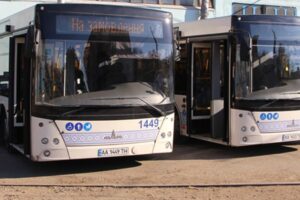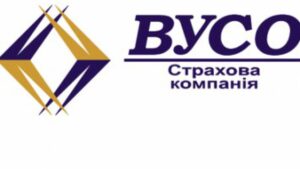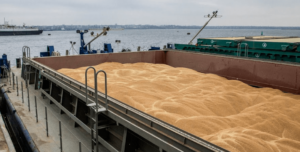
On December 24, Zaporizhzhia utility Zapoprozhelektrotrans announced a tender for compulsory insurance of civil liability of owners of land vehicles, according to the Prozorro electronic public procurement system.
The expected cost of the services is UAH 423.3 thousand.
The tender proposal is not required to be secured.
The deadline for submitting bids is January 1.
As reported, the winner of a similar tender a year earlier was VUSO Insurance Company.

Metinvest Group’s Zaporizhstal Iron and Steel Works has modernized the transfer trolleys between the departments of its Cold Rolling Shop (CRS), allocating UAH 2 million for this purpose.
According to the company, the upgrade took four months to complete, and the transportation of rolled products from one department of the Cold Rolling Shop to another has become safer and more efficient.
It is specified that the trolleys were replaced with more modern electrical equipment, additional warning beacons, as well as optical and radiation sensors were installed.
“Zaporizhstal is one of the largest industrial enterprises in Ukraine, whose products are in great demand among consumers both in the domestic market and in many countries around the world.
“Zaporizhstal is in the process of integration into Metinvest Group, whose major shareholders are System Capital Management (71.24%) and Smart Holding Group (23.76%).
Metinvest Holding LLC is the management company of Metinvest Group.

Ukraine and Norway have agreed to allow Ukrainian carriers to carry out transportation without permits until September 30, 2024, the press service of the Ministry of Community Development, Territories and Infrastructure (Ministry of Reconstruction) reports.
In August 2024, a meeting of the specialized commission will be held to discuss the extension of the “transport visa-free regime” with Norway for a longer period, Deputy Minister of Communities, Territories and Infrastructure of Ukraine Serhiy Derkach wrote on Facebook on Wednesday.
“Our goal and task is to ensure that Ukrainian carriers can carry out transportation without permits to as many countries as possible. Currently, we have agreed with Norway to extend the previous agreement, and we expect that the term of the “transport visa-free regime” will be extended soon,” Derkach emphasized.
According to him, the liberalization of transportation will help Ukraine not only to increase the volume of cargo transportation, but also to integrate into the European and global transportation system.
Liberalization of freight transportation is possible for vehicles of Euro 5 and higher environmental standards. Drivers must have a certificate confirming the environmental class of the truck when performing transportation on board, the deputy minister noted.
The “transport visa-free regime” with Norway expired on June 30, 2024, after a liberal regime for carriers had been in effect for a year since August 2023.
Ukrainian carriers also have access to “transport visa-free travel” with 37 countries, including the European Union. Over the past year, in addition to Norway, the Ministry of Communities, Territories and Infrastructure of Ukraine has managed to agree on the liberalization of freight transportation with North Macedonia, Turkey, Moldova, Georgia and Montenegro, the Ministry of Reconstruction noted.

The municipal enterprise “Elektrotrans” of Kropivnitsky city council on July 1 announced its intention to conclude with IC “VUSO” (Kiev) the contract of compulsory insurance of civil liability of owners of land vehicles (OSAGO), as it is reported in the system of electronic public procurement Prozorro.
The price offer of IC “VUSO”, the only participant of the tender, amounted to UAH 140,507 th. at the expected cost of purchase of services of UAH 177,2 th.
IC “VUSO” was founded in 2001. The company holds 50 licenses: 34 – for voluntary and 16 – for compulsory types of insurance. It is represented in all regions of Ukraine. It is a member of the ITSBU and the FSA, a participant of the Agreement on direct settlement of losses and a member of the Nuclear Insurance Pool.

Avtomagistral-Pivden LLC has won a tender for the construction of a transport interchange in Mykolaiv region with a bid of UAH 1.936 billion.
According to the announcement on Prozorro, the customer was the Service for Infrastructure Restoration and Development in Mykolaiv region. The expected cost of the works was UAH 2.28 billion.
The Eurotransmost consortium also participated in the tender with a final offer of UAH 1.937 billion.
The works under the tender include the construction of an interchange at different levels across the Southern Bug in Mykolaiv to the public road of national importance M-14 (Odesa-Melitopol-Novoazovsk). The length of the road surface is 8.3 km. The expected completion date is April 30, 2025.
According to Prozorro, the tender was held on February 8, and on March 6, Avtomagistral-Pivden published a notice of intent to conclude a contract based on the results of the tender.
Avtomagistral-Pivden LLC has been on the market since 2004. It designs and builds highways, bridges, interchanges, airfield complexes, and hydraulic structures. The company’s owner is listed in Opendatabot as Oleksandr Boyko. According to the financial results for 2022, the company’s net profit amounted to UAH 241.9 million, and net income was UAH 7.5 billion.

Greece proposes to use its ports in the Aegean Sea as a corridor for the export of Ukrainian grain, the Greek newspaper Kathimerini reports.
According to the report, the Greek government has already discussed its proposals with partners in the EU to transport Ukrainian grain through the ports of Thessaloniki and Alexandropoulos. The grain could be transported to the ports by rail through Romania and Bulgaria, and then loaded onto Greek commercial vessels.
The problem in this regard is the limited capacity of the railroad network in northern Greece, which is located on the border with Bulgaria and Turkey and escaped destruction during the recent floods.
A “green light” for Ukrainian exports via Greece could also be an impetus for the development and modernization of railways in northern Greece, particularly on the line from Alexandropoulos to Ormenio, a station on the border with Bulgaria.
During his visit to Kyiv, Greek Foreign Minister George Gerapetritis informed his EU colleagues that Greece is ready to contribute to solving the problem and focused on the “huge consequences” of the collapse of the agreement with Russia, especially for the countries of the Global South.
Athens is confident that such a proposal could be beneficial for both Ukraine and Greece, the newspaper writes.
As you know, Lithuania and Croatia have already offered their ports to help Ukraine with agricultural exports.